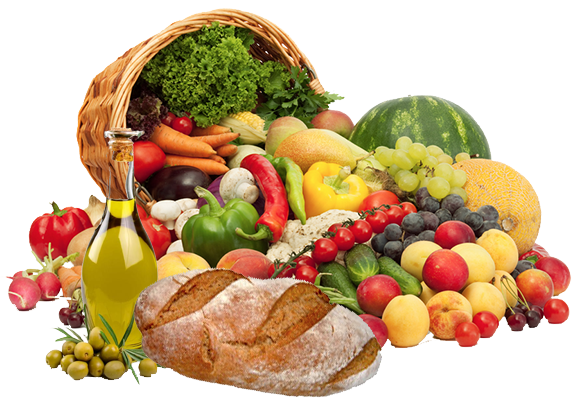Naturally Green, Organically Clean: The Benefits of Going Organic
Walk into almost any supermarket and as your browse the aisles you will more than likely come across several sections labeled “Organic.” These displays may be larger in some stores and smaller in others, but if you are anything like me, you have probably found yourself wondering what benefits if any organic foods offer and are they really worth the extra cost?
Answering that question involves taking a step back and understanding what organic foods are really all about. When you see the label “organic,” that designation refers to the way a particular item is produced. The United States Department of Agriculture defines organic foods as items that are grown or processed according to federal guidelines which relate to several factors including soil quality, animal raising practices, pest and weed control and the use of additives. All organic produce must be grown on soil that has been free of synthetic fertilizers and pesticides for three years prior to harvest with similar regulations in place for organic meat production. In order to be designated organic, animals have to be raised in living conditions that accommodate their natural behaviors and be given a diet that is exclusively organic, with administered antibiotics and hormones also prohibited in order for an animal to qualify as organic. As of January, 2015 the USDA estimated the organic retail market to be a $35 billion business, with more than 25,000 farmers, ranchers and businesses bearing the agency’s coveted organic certification.
Because organic foods contain no chemicals or additives, they are free of potentially harmful substances, making organic foods a wise choice, both for consumers and for the environment. Years of adding antibiotics to animal feed has given rise to tremendous problems, as people have been inadvertently ingesting the drugs given to the animals that they are now consuming, a phenomenon that has given rise to drug-resistant bacteria, which pose serious threats to human health. Additionally, it goes without saying that there is virtually no one who has a preference for eating food that has been treated with pesticides and preservatives, so going organic puts the consumer at a much lower risk of exposure to potentially harmful and even toxic substances.
What are you really getting when you buy organic produce? Fruits and vegetables that are grown with natural fertilizers such as manure or compost, in fields where weeds are controlled by hand weeding, mulching, tilling and crop rotation, with natural techniques, including birds, good insects and traps, employed to prevent insect infestation. Best of all, organic produce is free of the unwelcome additions found in conventionally grown produce including fertilizers, herbicides and insecticides, substances that frequently remain even after thorough washings, according to HelpGuide.org. The worst offenders, with the highest levels of pesticides? Apples, bell peppers, grapes, cherry tomatoes, celery, potatoes, kale, peaches, spinach, squash, strawberries, hot peppers and cucumbers.
When it comes to meat and dairy products, an organic designation is an assurance that animals have been fed an all organic diet and have not been given any antibiotics, hormones, pesticides and GMOs, but have been raised using natural methods, including clean housing, rotational grazing and a healthy diet, all of which have been shown to prevent diseases. Organic chickens must have outside access, fresh air, direct sunlight and freedom of movement, while livestock and milking cows are provided with access to grazing pastures for at least four months out of the year.
The added health benefits of organic food do come at a higher cost. The elimination of conveniences such as pesticides and chemicals make food production more labor intensive and organic animal feed comes at a higher cost as well. Unfortunately, most organic food producers are not large enough to qualify for government subsidies and smaller farms typically do not benefit from the economies of scale that larger facilities enjoy. Yet despite the additional cost, choosing organic foods is still a wise decision that will likely yield tremendous health benefits. Thankfully there are ways for the savvy shopper there to minimize the price differential between organic and conventional items including buying in season and comparison shopping and it is important to remember that sometimes it is worth paying a premium for a superior product. Yes, buying organic may cost more in the short term, but looking at the bigger picture, buying organic is a smart move that provides numerous health benefits which may, in the long run, end up saving you money.
Take all of the aforementioned factors into consideration and you are left with foods that are not only free of dangerous substances but may very well contain a wealth of vitamins, minerals and enzymes. A review by the Journal of Alternative and Complementary Medicine examined over 40 published studies comparing the nutritional content of conventionally grown produce and grains versus their organic counterparts and found that the organic items were nutritionist superstars. Organic items were found to provide 21.1 percent more iron, 27 percent more vitamin C, 29.3 percent more magnesium and 13.6 more phosphorus and that consuming five servings daily of certain organic vegetables provided the recommended daily allowance of vitamin C.



